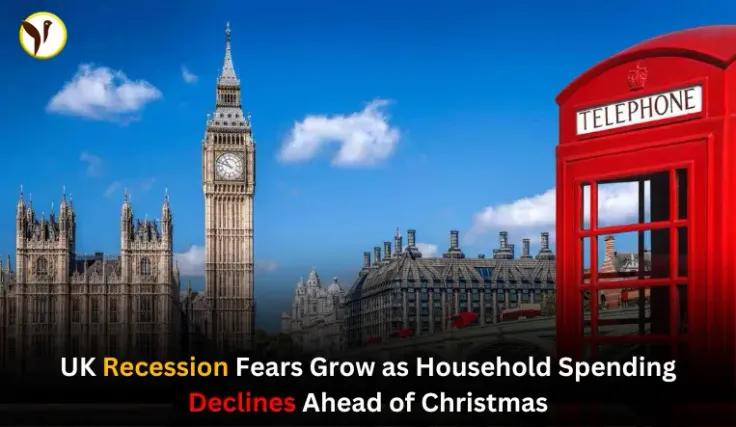Concerns over a possible recession in the United Kingdom have grown as evidence suggests that households are cutting back on spending in preparation for Christmas and to deal with increasing fuel expenses. Two recent retail activity statistics suggest that stores and online merchants are struggling as a result of rising mortgage expenses and the ongoing cost of living problem.
According to the British Retail Consortium (BRC) and Barclays, sales in October fell when adjusted for inflation. Despite the Bank of England's efforts to combat inflation by raising interest rates, these reports indicate that this has harmed consumer confidence and resulted in fewer sales.
In the year to October, Barclays recorded a 2.6% increase in card spending, much slower than the 6.7% inflation rate based on the latest consumer price index. Meanwhile, the BRC/KPMG retail activity monitor indicated that sales were up 2.5% from October 2022, although these statistics were not adjusted for inflation.
Aside from the retail sector, the UK construction industry is also suffering difficulties, with housebuilding contracting for the 11th month in a row, according to research by S&P Global and the Chartered Institute of Procurement and Supply (CIPS). All three construction categories - infrastructure, commercial property, and housebuilding - scored less than 50 points, indicating a deteriorating industry, with housebuilding scoring the lowest at 38.5.
The latest auto sales numbers from the Society of Motor Manufacturers and Traders revealed that customers are reticent to make large purchases, with fleet sales up by 30% year on year but private buyer sales increasing by only 0.3%.
Also read: After a Second Profitable Quarter, Zomato posts a 52-week high net profit
The BRC's CEO, Helen Dickinson, blames the downturn in retail sales on increasing mortgage and rental expenses. She warns that households are delaying their Christmas buying in order to take advantage of Black Friday promotions. Retailers are lowering costs and streamlining operations, but business rates will rise by £470 million next year. Higher inflation, borrowing rates, shrinking COVID savings, and growing heating bills, according to Paul Martin, UK head of retail at KPMG, are all factors impacting consumer confidence.
Barclays reports "slack-filling" in product packaging, leading to consumers cutting back on non-essential expenses like clothing and dining out. Unseasonably warm weather hindered indoor experiences, but pubs, bars, and clubs saw growth due to Rugby World Cup performance and increased holiday bookings.
Also read: Unlocking Conversational Intelligence with My AI: Explore the Power of OpenAI Chatbot Technology







